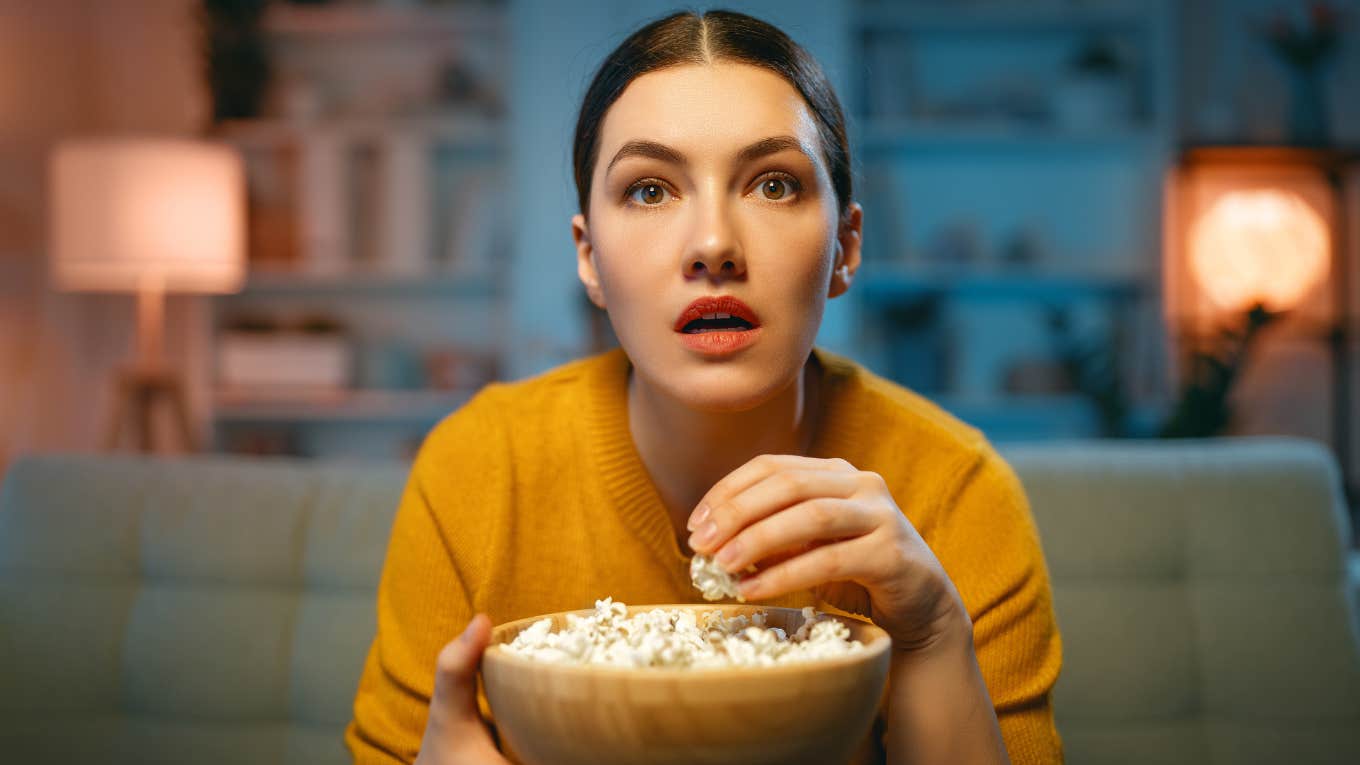People Who Watch TV With Subtitles Even Though They Can Hear Just Fine Usually Have These 5 Reasons
Sometimes you want to catch every word.
 Yuganov Konstantin | Shutterstock
Yuganov Konstantin | Shutterstock People watch TV quite differently from how they did in generations past. Whether it's a movie or your favorite series, we usually don't watch with undivided attention. Perhaps you're cooking dinner or scrolling on your phone at the same time. You might even have the volume completely muted simply because you aren't in an area where you can watch at full blast. All that is to say, the way we consume movies and TV has changed, and with those changes, a new survey found that subtitles play a major role, especially for young people under 45.
The Associated Press conducted interviews with over 1,000 U.S. adults and found that young people who could hear perfectly well preferred watching everything from short-form videos on social media to TV and movies with subtitles turned on. They had specific reasons why.
People who watch TV with subtitles even though they can hear just fine have these 5 specific reasons:
1. They want to catch every word
 The Attico Studio | Shutterstock
The Attico Studio | Shutterstock
Audio professionals often make movies go from loud to quiet in different parts so that viewers can feel the difference in dynamic range. That’s why some scenes are very noisy, only to be followed by quiet character dialogue where you can barely hear what they are saying.
To fix this, and to avoid having to keep turning the volume up and down, 55% of survey respondents said they use closed captions because they want to catch every word. It's certainly become something of a running joke that the second you turn your back on closed captioning, everything becomes harder to understand!
2. They have difficulty understanding accents
Whether it’s the Spanish accent of Puss in Boots in "Shrek" or the Italian accent of Vito Corleone in "The Godfather," sometimes it can be difficult to understand exactly what characters are saying. For that reason, about 4 out of 10 users who turn on subtitles do so because they have difficulty understanding accents.
This can also be true not only for modern accents but for older ones as well. If you’ve seen movies from the early 20th century, you might have noticed that actors spoke differently than they do today. It's called the Transatlantic accent, a mix of American and British accents. Pairing it with closed captions makes it easier to understand.
3. They are watching a foreign movie or TV show
One of the best things about streaming services is that we have access to so many more films and TV shows from all over the world. Not everything is dubbed, and that means subtitles become a necessity.
Even when films are dubbed, some people like to watch them in the original language in which they were recorded. For instance, "Squid Game" is a South Korean show that garnered nearly 600 million views across its first two seasons. Other noteworthy titles include "Lupin," filmed in French, and "Money Heist," in Spanish.
4. They are watching in a noisy environment
 Just Life | Shutterstock
Just Life | Shutterstock
The AP poll found that about three in 10 U.S. adults use subtitles because they are watching in a noisy environment. If you have little kids playing, someone cooking, or even people talking while you watch, turning on closed captions makes the experience a lot easier. They help you follow what’s being said, rather than guessing.
5. They are watching while multitasking
It seems to be a trend for people to multitask, especially with the accessibility of smartphones. Whether they're at work, school, or even just watching a movie, people enjoy using their phones, or even just giving them a quick use. To put it into perspective, Reviews.org stated that Americans check their phones 205 times a day.
Along the same lines, AP shared that about one-quarter of subtitle users said they turn on closed captions because they are watching while multitasking. Personally, I love to watch TV while I cook, but I know I won't be able to follow along without those captions on.
There are plenty of reasons why subtitles make TV and movie watching so much better. Now, if only they were big and bold enough so we could always see them...
Matt Machado is a writer studying journalism at the University of Central Florida. He covers relationships, psychology, celebrities, pop culture, and human interest topics.

